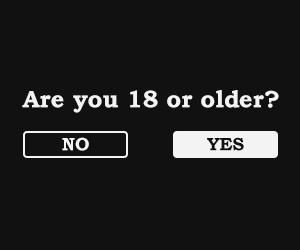MEDADO case digest part 1
Author: 79467545 • 48 views • 2023-01-22 00:30:06
IN RE: PETITION TO SIGN IN THE ROLL OF ATTORNEYS MICHAEL A. MEDADO, Petitioner. [DIGEST]
Facts:
We resolve the instant Petition to Sign in the Roll of Attorneys filed by petitioner Michael A. Medado (Medado).
Medado graduated from the University of the Philippines with the degree of Bachelor of Laws in 19791 and passed the same year's bar examinations with a general weighted average of 82.7.
On 7 May 1980, he took the Attorney’s Oath at the Philippine International Convention Center (PICC) together with the successful bar examinees. He was scheduled to sign in the Roll of Attorneys on 13 May 1980, but he failed to do so on his scheduled date, allegedly because he had misplaced the Notice to Sign the Roll of Attorneys given by the Bar Office when he went home to his province for a vacation.
Several years later, while rummaging through his old college files, Medado found the Notice to Sign the Roll of Attorneys. It was then that he realized that he had not signed in the roll, and that what he had signed at the entrance of the PICC was probably just an attendance record.7
By the time Medado found the notice, he was already working. He stated that he was mainly doing corporate and taxation work, and that he was not actively involved in litigation practice. Thus, he operated "under the mistaken belief that since he had already taken the oath, the signing of the Roll of Attorneys was not as urgent, nor as crucial to his status as a lawyer";8 and "the matter of signing in the Roll of Attorneys lost its urgency and compulsion, and was subsequently forgotten."9
In 2005, when Medado attended Mandatory Continuing Legal Education (MCLE) seminars, he was required to provide his roll number in order for his MCLE compliances to be credited.
Not having signed in the Roll of Attorneys, he was unable to provide his roll number.
About seven years later, or on 6 February 2012, Medado filed the instant Petition, praying that he be allowed to sign in the Roll of Attorneys.
The Office of the Bar Confidant (OBC) after conducting clarificatory conference on the matter recommended to the Supreme Court that the instant petition be denied for petitioner’s gross negligence, gross misconduct and utter lack of merit.
Issue:
WON the petitioner be allowed to sign in the roll of attorneys?
Court Ruling:
Petitioner has been engaged in the practice of law since 1980, a period spanning more than 30 years, without having signed in the Roll of Attorneys. He justifies this behavior by characterizing his acts as "neither willful nor intentional but based on a mistaken belief and an honest error of judgment."
We disagree.
While an honest mistake of fact could be used to excuse a person from the legal consequences of his acts as it negates malice or evil motive, a mistake of law cannot be utilized as a lawful justification, because everyone is presumed to know the law and its consequences. Ignorantia factiexcusat; ignorantia legis neminem excusat.
Applying these principles to the case at bar, Medado may have at first operated under an honest mistake of fact when he thought that what he had signed at the PICC entrance before the oath-taking was already the Roll of Attorneys. However, the moment he realized that what he had signed was merely an attendance record, he could no longer claim an honest mistake of fact as a valid justification. At that point, Medado should have known that he was not a full-fledged member of the Philippine Bar because of his failure to sign in the Roll of Attorneys, as it was the act of signing therein that would have made him so. When, in spite of this knowledge, he chose to continue practicing law without taking the necessary steps to complete all the requirements for admission to the Bar, he willfully engaged in the unauthorized practice of law.
Under the Rules of Court, the unauthorized practice of law by one’s assuming to be an attorney or officer of the court, and acting as such without authority, may constitute indirect contempt of court, which is punishable by fine or imprisonment or both.
Such a finding, however, is in the nature of criminal contempt and must be reached after the filing of charges and the conduct of hearings.
In this case, while it appears quite clearly that petitioner committed indirect contempt of court by knowingly engaging in unauthorized practice of law, we refrain from making any finding of liability for indirect contempt, as no formal charge pertaining thereto has been filed against him.
End of part 1
To share this notes please copy this URL and send it to your friends
Important :
This text must comply to our Terms and Conditions otherwise it will be removed from our Server.





